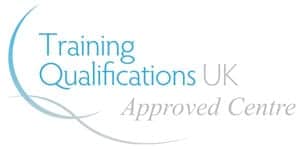What is the Diploma in Education and Training?
The Level 5 Diploma in Education and Training online is an introduction to teaching, one of a group of generic teaching qualifications covering most FE curriculum areas, enabling you to teach in further education. The DET qualification replaced the Diploma in Teaching in the Lifelong Learning Sector or DTLLS.
Who Should Study for a Level 5 Teaching Qualification?
The Level 5 Diploma is for you if you want to become fully qualified as a further education teacher. DET courses are also suitable for trainers and tutors working in adult and community learning or work-based training within public, private, voluntary or community organisations.
The DET offers an excellent opportunity for substantial career development for practitioners in teaching or training. Having achieved the diploma, you can gain the professional status of Qualified Teacher Learning and Skills (QTLS) through the Society for Education and Training via a process called “professional formation”.
Enrol on your Level 5 DET Online Now
High-Quality Course with Expert Tutor Support
 Teacher Assist
Teacher Assist
FE Colleges and other similar employers usually require this level of qualification or at least a firm commitment to gain the diploma after employment.
Integrated Specialist Diplomas in Education and Training
A part time course, the DET is a ‘generic’ teaching qualification covering most further education curriculum areas. However, if you want to teach lower-level English or maths, up to and including GCSE, most employers have additional requirements which you can meet with a specialist Diploma. To apply for the professional status of QTLS as a specialist teacher, you will also require a qualification at a minimum of Level 3 in your subject area. For example, an ‘A’ level in mathematics or English or Level 3 Award in Mathematics for Numeracy Teaching or Level 3 Award in English for Literacy and Language Teaching.
Similarly, if you intend to teach English for Speakers of Other Languages (ESOL) or you wish to work with those who have special educational needs or a disability (SEND), then your employer may require a specialist DET.
Teacher Assist currently offers the DET for teaching or training with an integrated specialism in teaching mathematics and numeracy. We can also provide you with a Diploma in Education Maths and Numeracy as a stand-alone course.
-
Product on sale
 Diploma in Teaching Maths and Numeracy (Level 5)Original price was: £1,600.00.£1,150.00Current price is: £1,150.00.
Diploma in Teaching Maths and Numeracy (Level 5)Original price was: £1,600.00.£1,150.00Current price is: £1,150.00.
Who Offers a Level 5 Teaching Course?
Only national awarding organisations (NAOs) and higher education institutions (HEIs), i.e. universities, can offer Level 5 teaching qualifications.
Teacher Assist partners with the awarding bodies NCFE and TQUK to provide the Level 5 DET.


NAOs use the title “Diploma in Education and Training”. Diplomas comprise a combination of mandatory and optional units. Typically, training providers focus on the most popular options.
Higher education institutions (HEIs) must base their qualifications on the same mandatory and optional units but do not have to call their courses “Diploma in Education and Training”. HEIs usually have one version for graduates and one for non-graduates. HEI DET qualification equivalents are typically called Professional or Post Graduate Certificate in Education for Post Compulsory Education and Training (PGCE or PCET).
Universities develop qualifications to comply with the Framework for Higher Education Qualifications (FHEQ). As such, they cover the same content and have equal credit value and identical teaching practice requirements as the DET. However, HEIs may offer courses at Level 6 or even at Level 7.
HEI courses, especially residential courses, tend to be expensive. Fortunately, employers tend not to discriminate based on where you achieve the diploma or equivalent. Also, employers seem not to care what the academic level of your qualification is or who the accrediting agency is. Qualification at minimum Level 5 allows educators to progress to professional status in the FE sector. So, the most practical and cost-effective way to qualify is a professionally supported online DET course.
Awarding organisations and teacher educators, such as Teacher Assist can provide information about the course content, length, assessments and teaching practice. We provide highly detailed course information at the start of the course.
What are the DET Course Entry Requirements?
DET applicants should be qualified or experienced in the subject which they intend to teach. If you plan to teach an academic discipline, you would usually need to have a degree in that specialism. If you want to educate in a professional or vocational area, you would typically need to have a professional or industry qualification and experience of working in that area. The general FE sector expectation is that you should be qualified to at least one level above the level you want to teach. Such demands can be a problem in some vocational areas. In this case, you should hold the highest level trade qualification available or have extremely substantial professional experience.
Requirements regarding prior qualifications in English and maths vary.
However, trainee teachers should gain English and maths qualifications at Level 2 before completing their initial teaching qualification.
Some providers may administer pre-admission tests in maths and English. Others will require formal qualifications before admission to their initial teacher training course for the FE sector.
You will find that successful completion of a full teacher qualification is academically demanding. All applicants need to have or be able to develop and then demonstrate high-level personal skills to complete level 5 diploma the academic and non-academic requirements.
If you are operating in a full teacher role, you must have sufficient written and oral communication skills. You must also be able to generate, manipulate and analyse statistical data. As an FE educator, you will also need to be able to support your learners’ mathematical and English needs at the appropriate levels while delivering the subject specialism.
Education and training diploma candidates also need to have the potential to study at academic Level 5 as a minimum. This level of study is the same as the second year of a bachelor degree course. Please note that, unlike the DET offered by Teacher Assist, some university equivalent DET qualifications are Level 6 or higher.
If you wish to progress to Qualified Teacher Learning and Skills (QTLS) status, you will also require level 2 qualifications in maths and English.
Need Some Advice?
We are here to help you
How Many Hours of Study Does the Diploma in Education and Training Take?
The amount of time that you will need to put into achieving your education and training diploma will vary. Relevant experience, prior knowledge and qualifications and academic ability will all influence the time that you will need to commit. However, guided learning hours (GLH) are a helpful measure of the number of hours of supervised study recommended to complete an accredited unit or a qualification.
GLH do not include unsupervised learning, preparation or assessment time. Guided learning hours are universally applied to the credit that learners receive for qualifications. There are 360 guided learning hours prescribed for the DET.
How Long Does a DET Take?
A one year programme in an HEI can accommodate the GLH requirements in 10 – 12 hours per week. A two-year course in an FE college runs to a commitment of about 5 hours per week, usually arranged over more than one session.
Independent (private) training providers such as Teacher Assist offer more flexible timetabling. We can include more intensive provision with online, distance and blended learning opportunities.
What is the DET Teaching Practice Requirement?
Teaching practice and observation and assessment are vital components of high-quality training. The DET requires you to complete a minimum of 100 hours of teaching practice. Ideally, this practice includes teaching a range of learners at multiple levels in various learning environments. HEI courses often require more than the minimum of 100 practice hours.
You should know that ‘teaching practice’ refers to the teaching and learning sessions that are:
- planned for specific learners;
- take place in a learning environment.
These sessions must include factors that contribute to successful teaching and learning, such as planning, delivery and assessment, and including differentiation. So, you cannot treat contact hours where you are merely supervising students as part of the required teaching practice hours.
Most of the teaching practice is required to be in groups of 5 or more learners. For other practices, the minimum ideal group size is 12 learners. You need to teach these larger groups to acquire, develop and demonstrate the full range of teaching skills and techniques and techniques and facilitate a broad spectrum of learning activities.
When you apply for the DET course, please discuss teaching practice arrangements in detail with the course provider. You may be responsible for arranging your teaching practice placement. So, you need to arrange the details of location, context, type of learners and subject level(s) with the course provider.
Some optional units have additional teaching practice requirements. Often the required number of practice hours required and the number of hours to be observed and assessed are not specified for optional units. Instead, the qualification specification includes information about the assessment and quality assurance strategy for these units.
Some optional units do specify a required number of practice hours. For example, the Level 5 Diploma in Teaching Mathematics Numeracy unit requires a minimum of 50 hours of practice. This practice must be in teaching and learning environments with a numeracy context. It should involve working with groups of learners. The trainee teacher must also evidence a minimum of four assessed observations of practice at the required standard totalling a minimum of four hours.
DET Qualification Content and Assessment
Awarding organisations base their accredited qualifications on a combination of mandatory and optional units.
DET Mandatory Units
The Level 5 DET mandatory units are:
- Developing teaching, learning and assessment in education and training Level 5;
- Theories, principles and models in education and training Level 5;
- Wider professional practice in education and training Level 5.
Each unit consists of several modules such as learning about the roles and responsibilities of a teacher in further education.
Course providers such as Teacher Assist can provide you with the learning outcomes and assessment criteria for each unit. Alternatively, they may be available from the awarding organisation or the units section of the Register of Regulated Qualifications.
Accreditation of Prior Learning for the Education and Training Diploma
If you have completed the CET level 4 further education teaching qualification or a level 5 stand-alone subject specialist diploma, you may be offered some prior learning accreditation. The accreditation can be applied to the course content and teaching practice when joining a full teaching qualification at level 5. You will need to discuss prior learning with the course provider to determine eligibility. Your prior learning may need to be current, i.e. within the previous five years.
There is no prior learning accreditation from a completed AET level 3 award.
Need Some Advice?
We are here to help you

